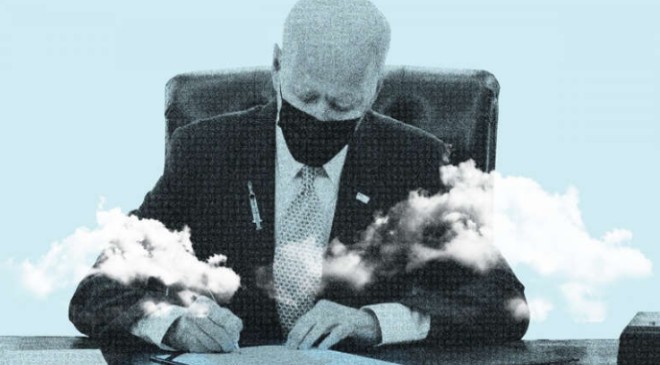WASHINGTON — President Joe Biden faces a series of headaches big and small going into the United Nations’ annual summit.
The 76th General Assembly meeting in New York City comes after weeks of international incidents grabbing the White House’s attention. Biden, who once chaired the Senate Foreign Committee and often frames his agenda with an international outlook, will address challenges new and old at a key moment for U.S. foreign policy.

The hybrid event will feature speeches from global leaders, with more than 100 planning to attend the event in person, while others attend virtually.
The range of guests at U.N. meetings regularly personifies the drama of international politics, something the Biden team is bound to run into this week.
In addition to the global challenges of the coronavirus pandemic and climate change, Biden’s team will navigate the pressures of shifting alliances, the limits of American power in the face of U.S. defeat in Afghanistan, and broader questions of stability in an emerging world order.
Here are the major issues to look out for.
Pandemic dominates global concerns
Top of the mind for world leaders is the coronavirus pandemic, which continues to ravage large swaths of the world.
Many rich nations, like the U.S., have been accused of hoarding resources like vaccines for their own populations while allowing the virus to devastate and mutate in developing countries. Biden is likely to be needled by leaders, including Tedros Adhanom Ghebreyesus, the director-general of the U.N.-run World Health Organization.
U.N. Secretary General Antonio Gueterres is expected to call for a 70% global vaccination rate by September 2022, according to Reuters.
The U.S. asked the U.N. to scale back the meeting to avoid a “superspreader” event that would burden New York City’s health care system.
Yet many diplomats and world leaders are attending in person, after complaining that video calls are no substitute, potentially presenting both a public health and security headache for local and federal governments.
Climate change report alarms globe
The Biden administration will also be scrutinized for its actions on climate change. Having identified climate as a major crisis of his presidency, Biden has sought to lead a green energy transition and chart new environmental regulations through the executive branch.
A recent report from the U.N.’s. Intergovernmental Panel on Climate Change, however, has set a near-apocalyptic tone on the issue for world leaders heading into the General Assembly.
Biden, who is still counting on Congress to pass the biggest parts of his climate plan, will be watched by world leaders for how he plans to enact his bold promises and if he’s willing to help other nations take steps toward carbon neutrality.
Reassuring U.S. global leadership
The weeks since the collapse of the U.S.-backed government in Afghanistan have seen many foreign and domestic lawmakers speculate if the U.S. is still willing and able to serve as a global preeminent power.
While Biden rejects the “America First” doctrine of his predecessor, former President Donald Trump, he has called for an end to U.S. nation-building and a new American foreign policy.
With the leaders of Israel, Japan, Saudi Arabia and others in attendance, Biden and his aides are likely to spend much of the conference reassuring allies that their longstanding military commitments are still strong.
Biden will also be managing reactions to a recently announced security alliance with the United Kingdom and Australia.
Dubbed AUKUS, the new group brings the already close allies together to share intelligence and military technology. It marks the first time the U.S. will share its nuclear submarine technology with a foreign country that doesn’t have nuclear weapons itself.
The move, which many analysts see as a move to counter China, also angered the France, who lost a contract with the Australians for a fleet of diesel submarines due to the new partnership. The French retaliated by recalling its ambassadors from the US and Australia.
Biden is set to speak with French President Emmanuel Macron in the coming days after to calm concerns in Paris, which see the move as potentially freezing the French out of the Pacific region. Some French lawmakers have also seen the move as putting American military involvement in North Africa, where France is heavily invested, into question.



































